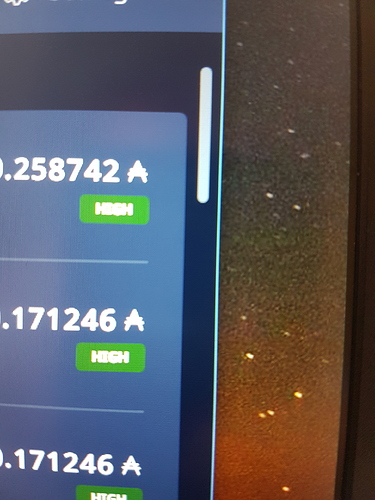Transaction fee of 0.25 ADA anyone else but me experienced that instead of the 0.17?
yes i have
Ok.Most likely because there are more transactions at times then… elaborate if anyone know another reason for this 
It depends on the size of the transaction in bytes…
However if you do the maths this guy’s 0.258742 transaction must have had 2352 bytes, whereas his 0.171246 transactions had 361 bytes.
But all the guy is doing is sending an amount of ADA, so really I don’t understand.
If someone can explain it to me, would be awesome.
This is the relevant document: https://cardanodocs.com/cardano/transaction-fees/
However it looks wrong, because you can’t have 0.1641702 ADA, because ADA is to 6dp.
Check out this one: https://adatracker.com/tx/492a2d3ff0a1b2d44829f0d44ba07055d247a2549ceaab2430b5c64b48c8a2af
Transaction fees on SL don’t change because of network usage. Only the size of transaction matters.
It’s a formula example. Does not represent real lovelaces.
Where are those numbers taken from?
I think this is correct, you can input a transaction cost and it will determine the bytes and vice versa:
The guy uploaded a screenshot… but the transaction fee often varies quite a bit. Take a look at this one for example:
https://adatracker.com/tx/6029781b602224f5f472b369ed5d9c988157008b03ddd140afe36ecb53ccf1a3
I’ve previously noticed myself, but the amounts are so trifling, never really thought to ask about it… but the implication is that this transaction was much bigger in bytes than a normal one… but why?
OK, that one it’s clear it’s huge.
But there are transactions that have the same number of inputs and outputs, but the fee is still different.
There is also a transaction fee calculator here:
Can this be related to adding metadata to transactions that increase the transaction size, hence the fees?
The transactions are identical and issued right after each other from the same adress within 1 minute.
I most likely have found out the reason: Same epoch but different slots on the three transactions in printscreen. Total of 1 transaction in slots for the 0.17s and it seems like the 0.25 transaction has been split into to between 5 and 10 smaller transactions by the chain… go figure the reason.
The 0.25 transaction is in a slot that has a bigger total amount of ADA transacted. Strange if the fee expected to be charged for a transaction is dependant on the total amount of a slot. Lets say that i would have transferred 1ADA.
It can also have to do with that Daedalus was having connection issues exactly at the time of the transaction. That as well can mean that parts of the the transaction can have been withhold…
I don’t think that is possible.
It isn’t.
also no.
Right.
If thats so,this issnt sustainable for users when tx encrease and big volumes are comming in.
“Looks wrong” dont change the fact that it happened in my daedalus today.
I think I found the transaction in question:
It was more expensive because the transaction increased the block to 3021 bytes instead of the usual 1000-2000 bytes. This is weird to me, but I’m not an expert.
Your cost (fee) as an individual user will NOT change depending on how many other people are using the system. Your individual transaction is charged a fee based on it’s size - by size I mean storage size (not value) as measured in bytes.
Under the hood, the way it works is a little counter intuitive. Your “wallet balance” is the sum of all unspent transaction outputs (UTXO), the sum of all amounts at all the addresses belonging to your wallet that are unspent. There are videos on YouTube if you want to understand it. It works the same as BitCoin. The reason I am explaining this, is that when you make a transaction (send ADA to an address), the inputs maybe one or may require several unspent transaction outputs. If there are several inputs then your transaction is bigger than if there is only one. You can view this on adatracker.com and this is why transaction fees will be slightly more or less in some cases.
This all makes sense. The thing I don’t quite get is that sometimes I see two separate transactions with the same number of inputs and the same number of outputs, and yet still the fee is different between them. Is there some kind of compression where some addresses compress better than others? I don’t know. And that is the only mystery here for me.
Anyway, the transaction fee is so small, there is no need to worry about it, except for intellectual curiosity. And the fees for the Settlement Layer of Cardano are fixed (unlike BitCoin or Ethereum) so they will always be what they are - again, volume of network traffic does not change the transaction fee.
